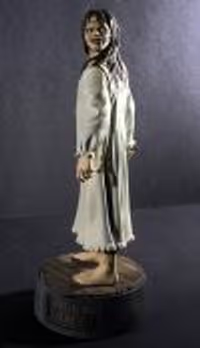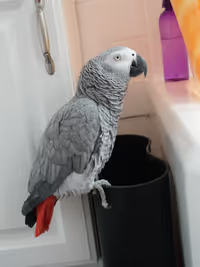She's Back! CARRIE - First preview !!!
#600King Musicals
Posted: 2/8/12 at 1:14pm
The senior "kids" in the movie were all 22-26 years old in real life.
Betty Buckley pointed out that she was also 26 years old when she played Miss Collins, the same age as a few of her "students." She said she had a real "attitude" back then, and she seemed to gravitate easily toward "authority figure" characters. So she seems a little older than she was, while some her same age seem a bit younger. It's all about the illusion anyway.
She also mentioned that she dubbed the voice of the little boy on the bike who taunts Carrie on her way home. He was played by DePalma's real-life nephew.
blocked: logan2, Diamonds3, Hamilton22
#601King Musicals
Posted: 2/8/12 at 1:15pmI always said they should have cast Carolee Carmello as Margaret. She could have sang those original keys and had more a religious flavour to her vocal.
#602King Musicals
Posted: 2/8/12 at 1:16pm
Judy
Kuhn!
"In Oz, the verb is douchifizzation." PRS
#603King Musicals
Posted: 2/8/12 at 1:20pmFound it- Molly studied at LaGuardia High School. I guess that's how BroadwayLuvSong (sorry B- I always get those letters confused so I just spelled it out) knows her. She's a REAL talent! Oh- and I'm also impressed with the knowledge about the original movie that is being displayed on this thread!
#604King Musicals
Posted: 2/8/12 at 1:21pm
why wouldnt they start furiosly texting when Carrie began the destruction? It would've been on youtube! There'd be no need to interrogate Sue!
We can assume that at the very least Carrie can jam a cell signal. But I see no reason why several of them can't pull their phones out to discover they don't work.
I'm still disappointed that Carrie doesn't destroy the whole town the way she does in the book. The thing about "Carrie" is that it's a horror story. And Carrie becomes a monster on a rampage. It's bad enough that they barely show the high school rampage in the stage show. They cut right to the aftermath, and while that may be effective, they cut the "monster." And Carrie IS a monster. At least she becomes one. She's not a telekinetic victim, even if we understand her motives and how she was driven to destruction.
She's a monster. It's a horror story about her becoming a monster.
I wouldn't want to rob the audience of that critical aspect, even as they cheer her on or root for her or understand why she does what she does. It should give them all pause that she takes it that far. It also gives them a greater opportunity to examine how they feel about her actions.
In the movie, it was for budgetary purposes that they couldn't have her destroy the whole town. In a musical that is depicting it so abstractly, why not "go for it" in the narrative? Why is she still just destroying the high school? She shouldn't be selective or merciful toward anyone at that point.
EDIT: That's another missing element here (and in the movie) ... in the book, Carrie doesn't just kill the people who teased her and laughed at her. She kills everybody in the town. Strangers. People she's never met. She shows no mercy.
The only one in the town--not just the high school--who survives, is Sue.
blocked: logan2, Diamonds3, Hamilton22
#605King Musicals
Posted: 2/8/12 at 1:23pm
It's honestly not that important whether the kids are realistically teenagers or not. Way too literal. I think one of the real traps with this material (and this production)is the belief that this needs to be a 'realistic' 'fleshed out' view of high school.
As others have pointed out, the film doesn't waste time in trying to flesh out the characters of Sue, Tommy, Chris, Billy etc., because they are archetypes. Anyone who has ever been in high school knows who these kids 'are' -- Carrie's revenge is so delicious because she represents (albeit in a very hightened way) the part of all of us that in some way felt like an outsider when we were teenagers and who wished at one point or another we could 'get payback' to someone - a teacher, a student, our parents - who at one point or another made our lives 'hell'.
The film captures the 'feel' of high school in a general way that's again way more universal than this revision which tries very hard to be relevant and realistic.
#606King Musicals
Posted: 2/8/12 at 1:34pm
Besty, as much as Carrie fits the literal description of the word "monster", I see her as a victim who, after being tormented and bullied to her last nerve, finally explodes and gets her revenge. The fact that she destroys the whole town says to me just how heinous the town (as represented by the high schoolers) was, and how Carrie reached her boiling point.
Rather than see her as a monster, I cheered her in getting revenge. Something we all have wished to get at one time or other in our lives, I think.
#607King Musicals
Posted: 2/8/12 at 1:38pm
I believe that's what I was basically saying, MB.
Besty, they didnt show it, but they do have Sue state that she followed Carrie's destruction all the way through the town and ended up at her house.
Also, while I agree that Carrie becomes a monster of sorts, in her mind, everyone is out to get her, so there is noone safe to her. The one she percieves most understanding and trustworthy, Miss Gardner, she sees laughing at her in the end, even if it is in fantasy. For Carrie, it's the last straw...now everyone must die.
"In Oz, the verb is douchifizzation." PRS
#608King Musicals
Posted: 2/8/12 at 1:38pm
I think you are actually both right. In the book Carrie really does become a monster during the destruction. She destroys the people and the town with the same glee the girls had in throwing tampons at her. King is definitely trying to make a statement in that.
When she returns home, there is a sort of return to the victim we've experienced throughout the story. Carrie as a character of course dies and in the book brings the whole pitiful world down around with her in flames as she herself extinguishes.
I think we are supposed to in turns be frustrated, sympathetic, horrified, exhilarated, scared and saddened by the character. That's what makes CARRIE as a girl and a story so utterly compelling.
#609King Musicals
Posted: 2/8/12 at 1:39pm
Jane, that attitude might be more about the way our concepts of right and wrong have decayed. Narratives like "The Count of Monte Cristo" reflect a former moral belief that there is nothing admirable about revenge, and how it can turn you into a monster worse than those who injured you.
But today, most people tend to admire revenge and striking back; "turn the other cheek" and "rise above" are seen as weaknesses, not virtues.
#610King Musicals
Posted: 2/8/12 at 1:42pm
I definitely think her character and the story are written for us to cheer her on ... but we also have to realize we're cheering a "mass-murderer." Someone who kills for "justified" revenge but also randomly kills people she's never come in contact with in her life.
I understand all the reasons why she does it, but to remove these impulse killings that have no direct bearing on her circumstances cheats the audience of an added element for them to consider while they root for her.
(I still think Stephen King's main point in this book is that WE'RE the "monster" for having perpetuated a society that can produce a Carrie White-type victim/murderer.)
blocked: logan2, Diamonds3, Hamilton22
#611King Musicals
Posted: 2/8/12 at 1:47pm
Newintown,
"Carrie" is fiction, it's all make believe. I was in that mode when I say I cheered her revenge. And I'll go as far as to say that most people are also experiencing fantasy, escapism. For a little while.
I can't say if anyone would want to see that same thing happen in real life.
Owen22
Broadway Legend Joined: 2/24/11
#612King Musicals
Posted: 2/8/12 at 1:54pmJane, "Carrie" of course is fiction. But it can be argued that their tormentors helped create the Columbine killers, who didn't even bother to shoot most the people who bullied them. By the time they drew their guns they were, indeed, monsters.
#613King Musicals
Posted: 2/8/12 at 2:01pm
Exactly, Owen - I hear many kids today (suburban as well as urban) say that their mothers have told them, "if anyone ever hits you, you hit them back twice as hard."
My parents used to advise not engaging with bullies. Times have changed. Returning aggression with more aggression seems to be the admired approach today.
#614King Musicals
Posted: 2/8/12 at 2:03pm
^ That's my point exactly.
For a creative team that seems enthusiastically dedicated to bringing this story into a parallel with today's headlines, that's a critical aspect that they're all but sweeping under the carpet: Carrie's rampage.
It's like writing a piece about the Columbine disaster and then not ever showing the actual disaster. Everything leading up to it, and then you jump cut to after it happened.
I think there should be an "abstract" way to depict her full rampage with lighting, sound effects, perhaps having Carrie walk slowly out into the audience as we hear car breaks, thinks crashing, flipping over, people screaming. I get that it's not going to be literal, but it shouldn't be "hidden" or removed either.
blocked: logan2, Diamonds3, Hamilton22
#615King Musicals
Posted: 2/8/12 at 2:07pm
Clearly we are all right in that King created an amazingly complex character in Carrie (and Margaret).
I do think there is a "final straw" with the destruction of the town. Finally, Carrie finds power over her mother, and knows that, if needed, she has power over her tormentors...but she gives them one final chance and it turns out more horrific than what's come before. Tommy asks her to the dance, she's told she looks beautiful by Miss Gardner, Tommy and is invited to sit with the girl with the yellow dress (Frieda, I think) and asked to go out after the prom to socialize. She falls for it again and that's it...she's done...she snaps and everyone is now her enemy. She can trust noone.
I know that when I was a teenager, I fantasized about being able to flip a car.
"In Oz, the verb is douchifizzation." PRS
#616King Musicals
Posted: 2/8/12 at 2:10pm
owen and newintown,
Believing that what is seen in the media and in fiction causes people to repeat in real life is a topic of huge controversy which would probably be a long thread on this board.
#617King Musicals
Posted: 2/8/12 at 2:34pmAlso owen and newintown, since it sounds like you do believe that fiction causes/can cause people to repeat certain crimes in reality, are you saying Carrie and other such productions should not be produced and aired?
#618King Musicals
Posted: 2/8/12 at 2:37pm
The best part about "Carrie" is that everyone involved is both a victim and perpetrator. They are innocent and guilty.
Even the audience who cheers them on. The "innocent bystanders." (That's why I think having her come out into the audience during her rampage would be effective. She is destroying everybody, even the third-party observers of her story.)
And Carrie (herself) must have her moment on stage where she is a murderer. And killing her mother doesn't count, since in context it's self-defense. In fact, if this were her only visible "crime," she would be found innocent by a jury and released on those very grounds.
We need to see the "monster" that was created by "us" (society).
blocked: logan2, Diamonds3, Hamilton22
#619King Musicals
Posted: 2/8/12 at 2:47pm
"think there should be an "abstract" way to depict her full rampage with lighting, sound effects, perhaps having Carrie walk slowly out into the audience as we hear car breaks, thinks crashing, flipping over, people screaming. I get that it's not going to be literal, but it shouldn't be "hidden" or removed"
It is there, Besty. The destruction effects continue after Carrie leaves the prom and Sue comes onstage and explains that she followed Carrie's destruction of the town until she stopped at her house. It's not all you describe above, but it's definitely there...more than implied.
"In Oz, the verb is douchifizzation." PRS
#620King Musicals
Posted: 2/8/12 at 2:53pm
So Sue narrates it? I think that's a huge cheat, as much as if Sue were to inform the audience that Carrie went home and killed her mother and then herself.
The end.
I'm glad it's "mentioned" but ...
Why are we hearing about a major climactic event of this story from a third-party character?
It's like watching a theatrical adaptation of "Titanic" and having some third-party character walk on stage and say, "And then the ship sank."
Oh, wait ...
blocked: logan2, Diamonds3, Hamilton22
#621King Musicals
Posted: 2/8/12 at 2:58pm
The framing device with Sue as a narrator isn't very well fleshed out in this production. The show starts with the interrogation and its revisited a few times but it does seem that (so far anyway) its a device that is used more to fill in the blanks of the story rather than to serve as a good ongoing theatrical conceit.
Hopefully they work on that aspect of the script - if its even necessary, which I don't really think it is.
#622King Musicals
Posted: 2/8/12 at 3:00pm
It's the ancient "Greek chorus" approach, where major events happen off-stage.
Blah.
blocked: logan2, Diamonds3, Hamilton22
#623King Musicals
Posted: 2/8/12 at 3:06pm
Maybe I'm not explaining it well, but it does go on, with Carrie outside, explosions continue for awhile. We are still in the gym with everyone dead, hearing it all, and then Sue comes out in "confession" mode and explains that she followed Carrie through her rampage home (what idiot would do that?!) and then we are with Margaret as Carrie comes in. Sue gets there just after Margaret kicks.
Much more than merely mentioned.
I'm not sure how much more they coud've done.
"In Oz, the verb is douchifizzation." PRS
#624King Musicals
Posted: 2/8/12 at 3:13pm
The most interesting part of the interrogation in the book is in the sequences in which Sue talks about the psychic connection she and Carrie share during the destruction and at the time of Carrie's death.
It's compelling and moving and if they want to have that silly narrative device, they should pull that material into some monologue for Sue because her explanation of the psychic-emotional connection with Carrie in those last minutes it is really the only reason the interrogation sequence even exists in the novel.
Videos





